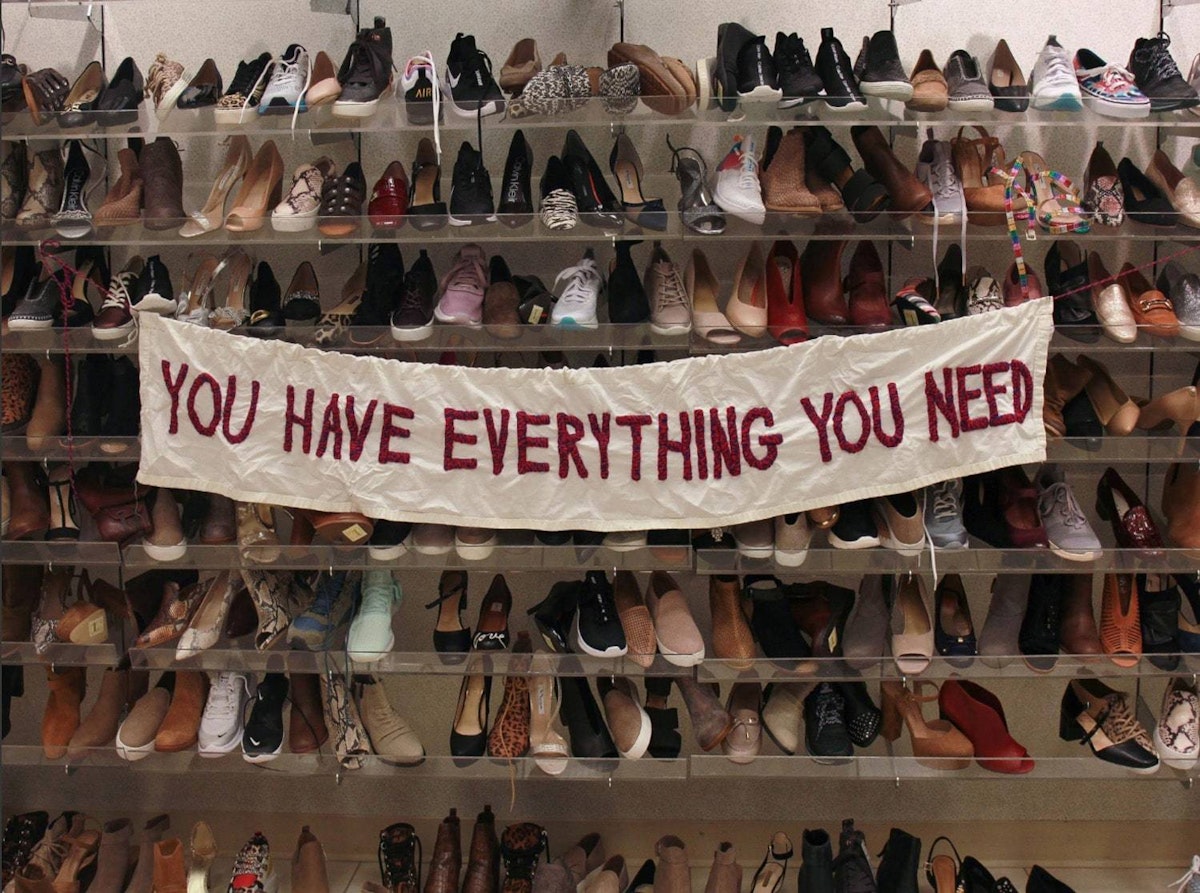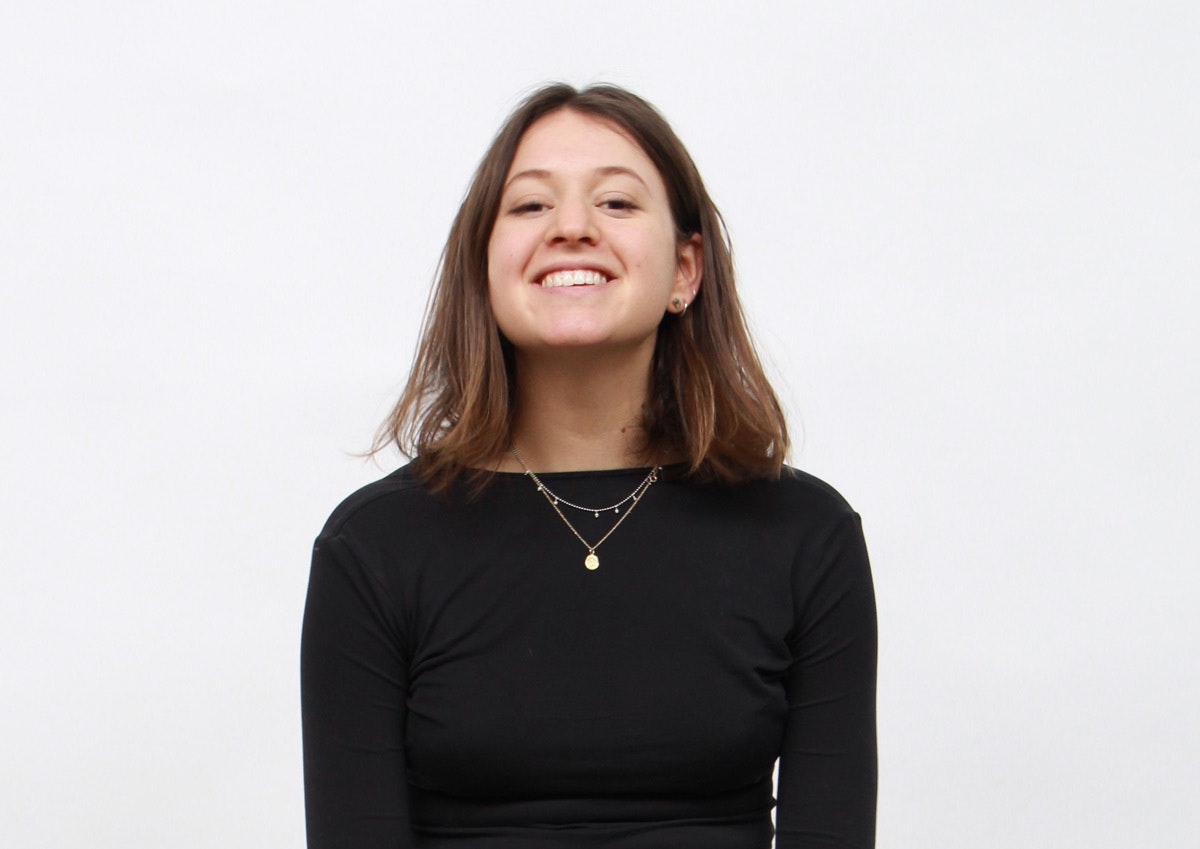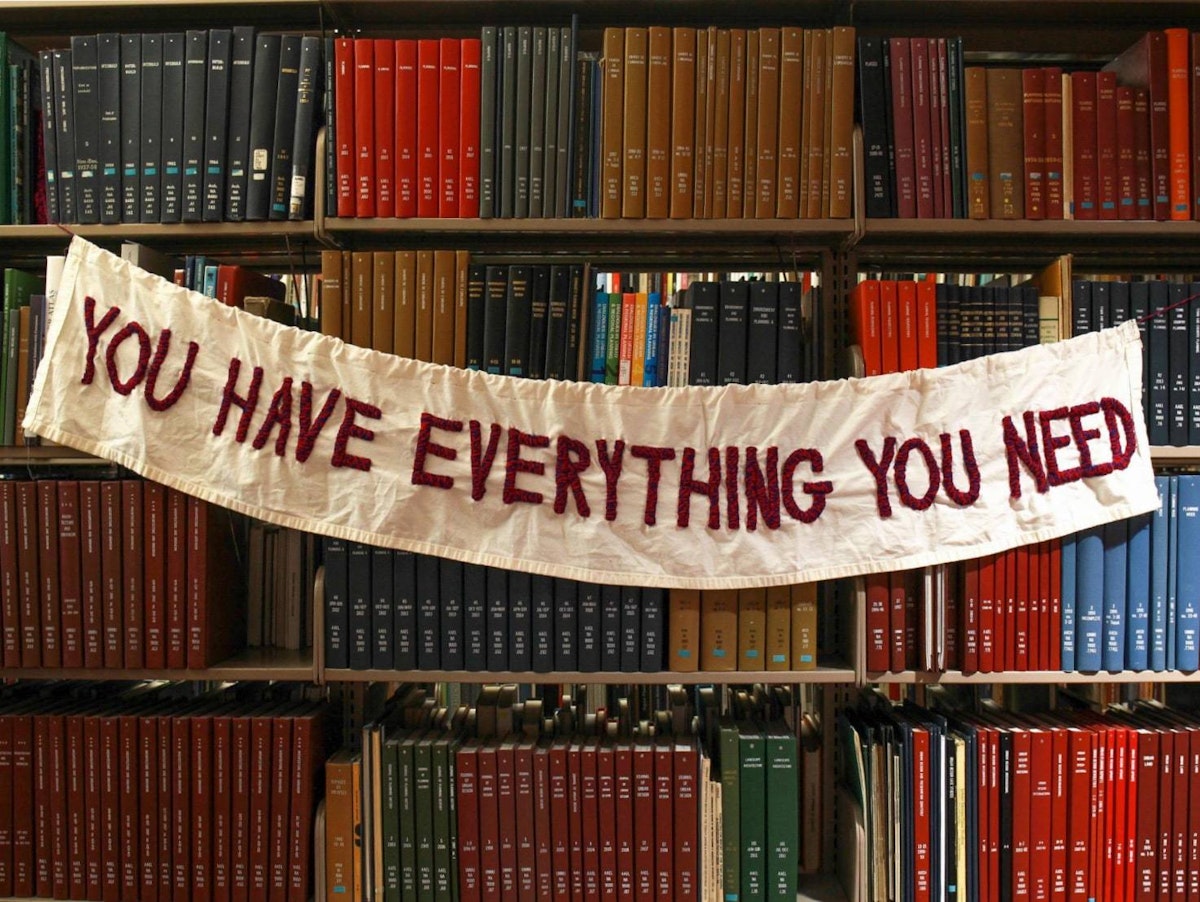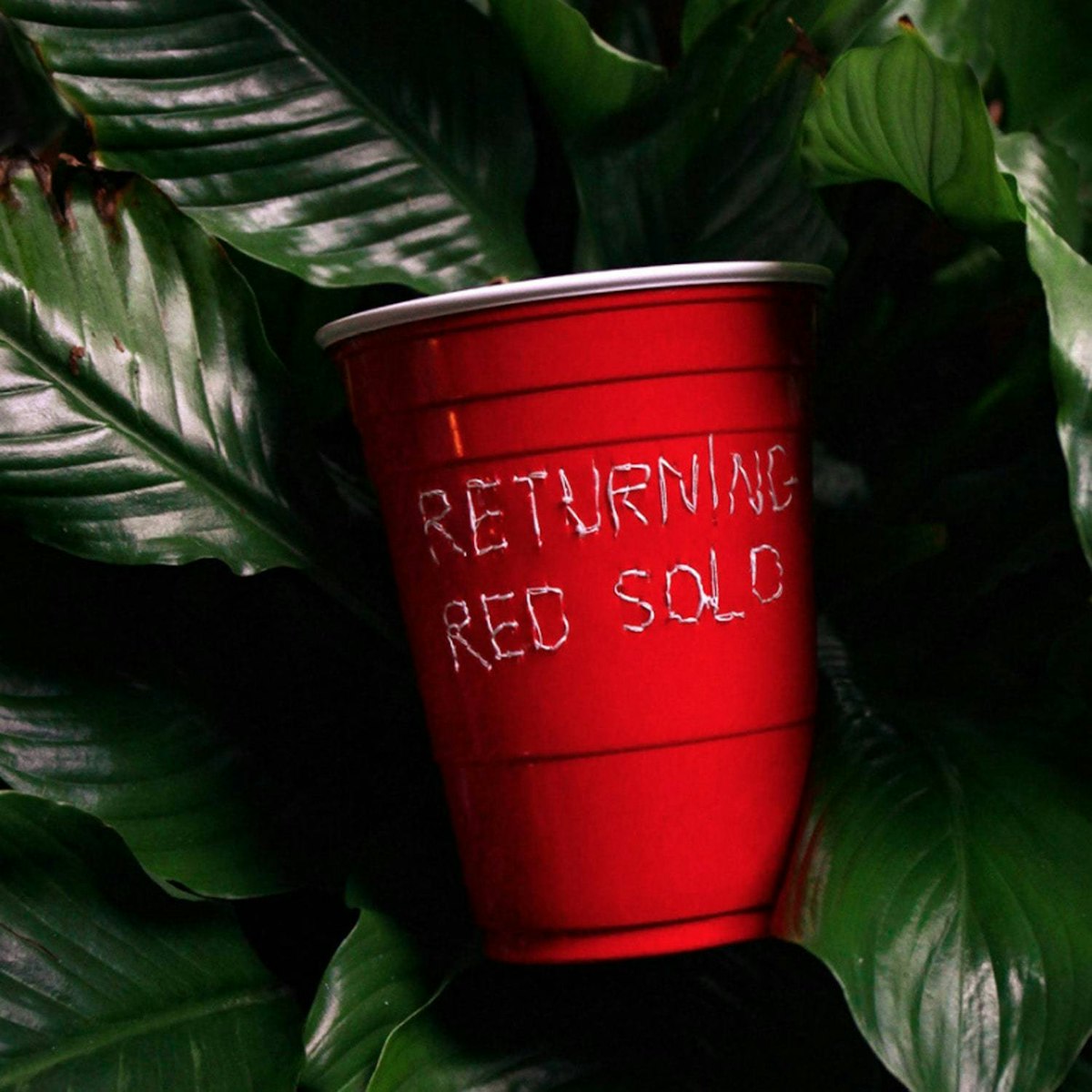2020 Big Idea Award Winner: Erin Wakeland (BFA ‘20)
Erin Wakeland's (BFA '20) big idea started with a modest banner. In red capital letters stitched across white cloth, it reads "YOU HAVE EVERYTHING YOU NEED." Wakeland made the banner as part of an independent project during her senior year, when she also hung it up and photographed it in various locations around Ann Arbor: suspended from trees in the woods, draped over a Dumpster in the city, obscuring a shoe rack at the mall.

The banner was one of several public performance-based social experiments Wakeland had created to get people thinking about what happens to our attention in a capitalist system. Reflecting on the sentiment with her mentor, Professor Rebekah Modrak, Wakeland realized it wasn't about literally having it all, but about "feeling confident enough in your own abilities and your own personhood to be able to weather through whatever comes."

Now she wants to inspire that confidence in others, specifically young people across the United States. As the first winner of the Penny W. Stamps School of Art & Design's $25,000 Big Idea Award for graduating seniors, Wakeland will launch Camp I Prefer, a series of month-long, arts-based workshops for teenagers meant to foster independent thinking, creativity, and self-reflection.
Working with a network of artist residency programs across the United States, Wakeland plans to lead eight, four-week camps for teens ages 13 through 16 through activities that encourage curiosity, observation, critical and artistic thinking, and craft-based skills while building an identity apart from consumer-driven materialism and standards for productivity. The initial vision for the program included activities informed by each unique location and included projects like zine-making, setting up public conversation booths, and riding subway routes to spell words via patterns.
While the COVID-19 pandemic has forced Wakeland to evaluate the feasibility of the program’s immediate delivery, she remains optimistic in what the concept can offer the world.
“The project will be adapted to our current world,” Wakeland said. “This exploration is currently underway and I hope it might lead to creative solutions that aren't outlined in my initial proposal.”
Wakeland's performance pieces, and idea for the camp, are partly inspired by the work of artist and author Jenny O'Dell and her 2019 book "How to Do Nothing: Resisting the Attention Economy."

"She talks a lot about divesting your attention in the ways that capitalism sucks it in, and then changing shape, so your attention in your life is not so easily co-opted," Wakeland says. "I see that manifesting in a lifestyle of having a creative-thinking toolbox and learning skills and trades that make you into a shape that is not easily co-opted."
Growing up in a small mid-Michigan town without many artist role models taught Wakeland to be resourceful and pragmatic about her work. Encouraged by family and friends, she made things out of what she could find: stop-motion animations from yarn scraps, collages from cut up magazines.That thriftiness carried over into art school.
At Stamps, Wakeland admits to getting a little impatient with the school's multidisciplinary approach in the beginning ("I was craving for someone to tell me exactly what to do and what I needed to do in order to do cool things," she says). But a class with Modrak during her junior year helped her understand how to use the skills she had built to address problems and curiosities she had about the world.
"That was a switch: instead of making things first and then observing them, I would observe things and then make something in response," Wakeland says.

Wakeland's response pieces walk a light-hearted line between provocation and practical joke. Whether it's mending littered Solo cups and returning them to a fraternity house's lawn; setting up as an artist-in-residence to do plein air painting in a grocery store; or creating a pillowy "comforter" costume to greet art museum patrons, the goal is always more conversational than confrontational. Ultimately, Wakeland says she wants to help people listen to themselves, so they can respond to her work in a way that connects themselves to others, current issues, and the world.

"Some things might sound shocking, but I don't think shock value is always the best end for a project," Wakeland says. "My goal is for my projects to act as prompts to different ways of thinking or different ways of being. If I only shock people, then I think I've failed."